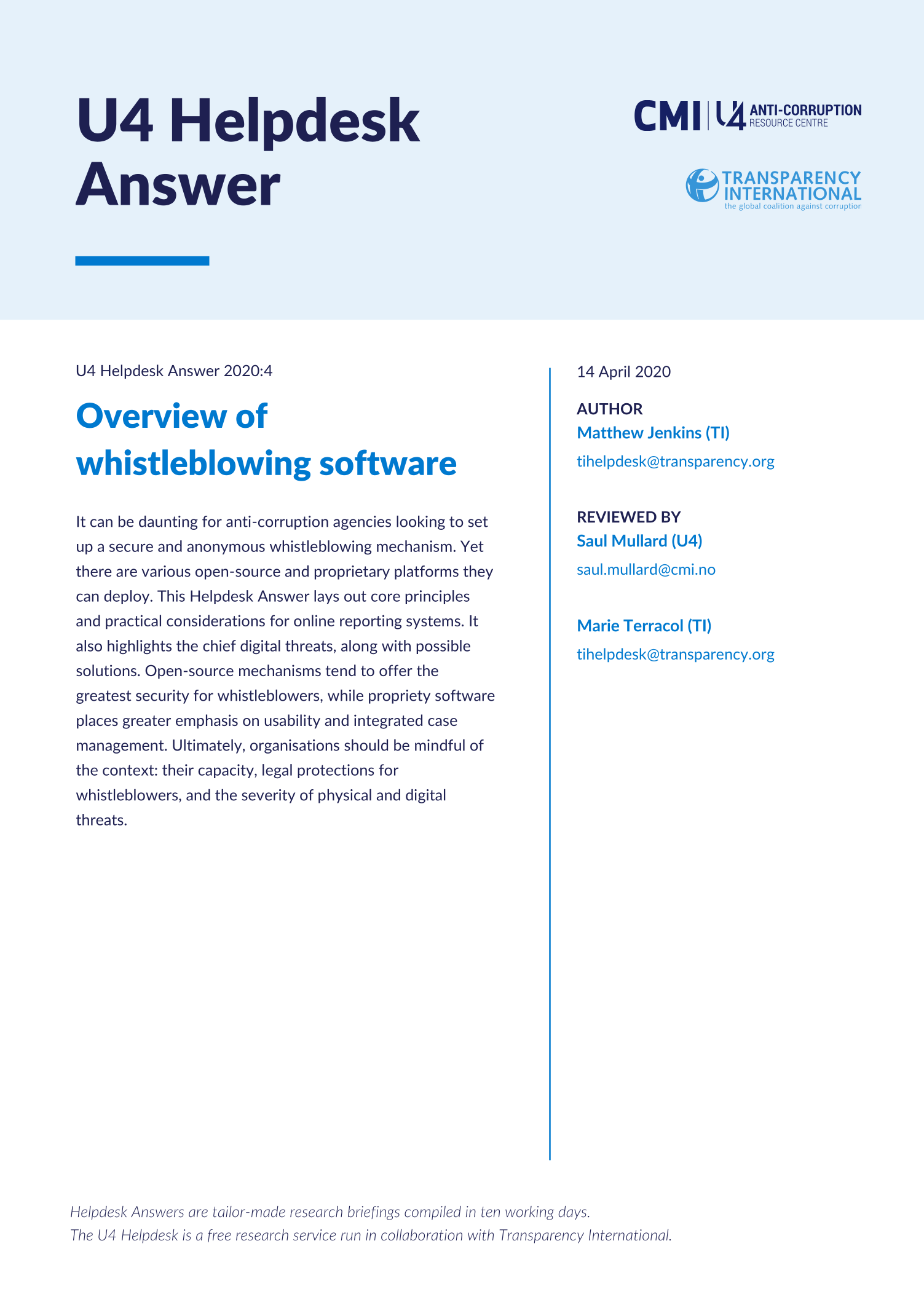Main points
- Whistleblowing can act as a crucial check on human rights abuses, corporate malfeasance and corruption. Despite this, many countries lack legal frameworks needed to protect whistleblowers, which deters people from reporting misconduct.
- Anonymity and ease-of-use are particularly important factors in people’s decisions whether to come forward with evidence of wrongdoing.
- As such, providers of whistleblowing channels, whether analogue or digital, must make decisions as to the trade-off between security and usability.
- Open source software tends to prioritise security for the whistleblower, whereas many propriety solutions place greater emphasis on usability and case management functionality for compliance teams in client organisations.
